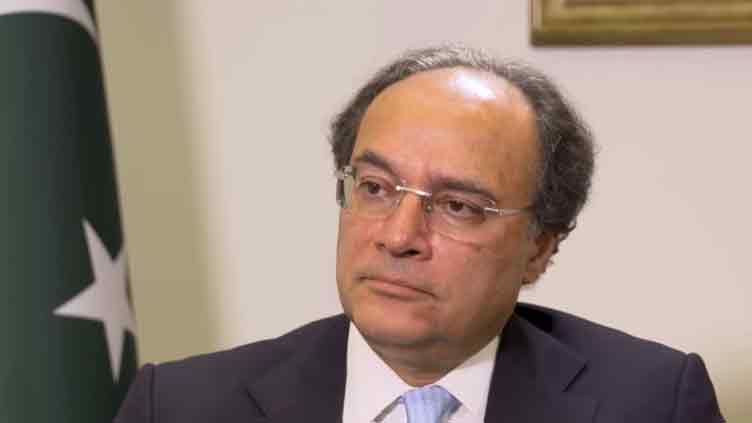Aurangzeb emphasizes economic revival at Harvard University conference

Senator Mohammad Aurangzeb, the Federal Minister for Finance and Revenue, stated at the Pakistan Conference 2025 at Harvard University that Pakistan has arrived at a crucial juncture of economic recovery and change.
“Following the inheritance of an economy beset by substantial challenges—ranging from a contracting GDP to dwindling reserves—we have stabilized the fundamentals, reinstated confidence, and rekindled growth,” he stated at the conference entitled “Bridging Divides, Building Tomorrow: Pakistan’s Path to Inclusive Growth and Governance.”
The Pakistan Conference is an annual premier event that convenes policymakers, academics, business executives, and students to deliberate on Pakistan’s economic, political, and social trajectory, as stated in a news release published by the finance ministry on Monday.
The gathering, organized by Harvard students with assistance from university research groups, is the largest student-led conference on Pakistan in the United States. The conference functions as an essential platform to foster collaborative solutions, enhance global involvement, and exhibit the ingenuity and resilience of the Pakistani populace.
Aurangzeb highlighted key achievements including a historic reduction in inflation to 0.7%, the lowest in 60 years; foreign exchange reserves doubled; a 3% currency appreciation; and a current account surplus exceeding $1 billion in March 2025.
Pakistan also witnessed a 44% increase in Foreign Direct Investment (FDI), a 24% rise in IT exports, and record-high remittances projected at $38 billion. Pakistan attained a fiscal surplus for the first time in 24 years, recording the greatest primary fiscal surplus in two decades. Fitch has elevated Pakistan’s sovereign credit rating to B- with a stable outlook.
The Finance Minister asserted that “stability is not an end but a means to an end,” detailing the government’s strategy, which encompasses maintaining fiscal discipline, controlling inflation, and advancing substantial structural reforms in energy, taxation, governance, and the management of state-owned enterprises. Travel guides for Pakistan
He flagged major growth opportunities in Pakistan’s rich mineral resources, expanding IT sector, green energy initiatives, and the country’s youthful entrepreneurial population. He underlined that enhancing human development is essential for maintaining robust, inclusive growth.
On debt management, the Minister noted that Pakistan successfully reduced its public debt-to-GDP ratio from 75% to 67.2%, with a plan to bring it below 60% over the medium term through prudent fiscal management, enhanced domestic financing, and tax reforms.
Rightsizing government expenditures and privatizing loss-making state-owned enterprises are expected to save up to 2% of GDP annually, with efforts focusing on transparency, competitive processes, and investor confidence.
Discussing Pakistan’s financial sector, the Minister laid out plans to build a deeper and more resilient system by expanding digital banking, capital markets, green finance.
Highlighting the impact of climate change, the Minister reaffirmed Pakistan’s commitment to integrating resilience into infrastructure and agriculture. He singled out Resilience and Sustainability Facility (RSF) from IMF and Country Partnership Programme (CPF) approved by the World Bank as anchor for building climate resilience.
“Pakistan’s future will be shaped by bold, necessary choices. By investing in our people, modernizing our economy, and staying committed to reform, Pakistan will emerge stronger, greener, and more competitive,” concluded the Minister.